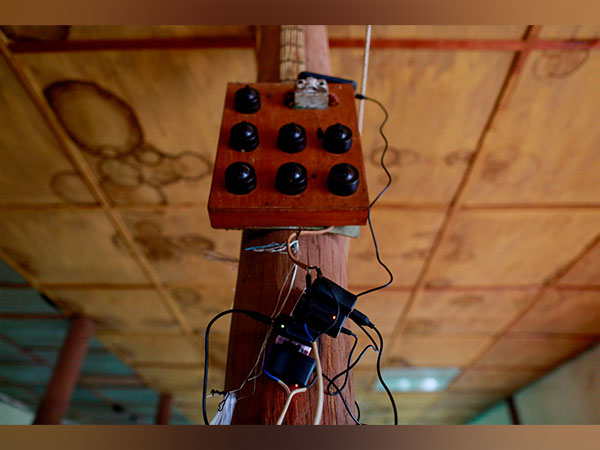

As Pakistan moves forward to meet the IMF terms, the federal cabinet authorised a significant increase in the electricity base rate through circulation summary in a late-night decision, according to sources cited by ARY News on Saturday.
Sources privy to the development told ARY News that the federal government has increased the basic power tariff by Rs3 for some customers and by Rs7.5 per unit for some other consumers.
The cabinet approved a hike in power tariff on the recommendation of the National Electric Power Regulatory Authority (Nepra).
According to the proposal, the government recommended an increase of PKR 3 per unit for the non-protected residential consumers using 1 to 100 units which will take the current per unit cost from PKR 13.48/unit to 16.48/unit.
Similarly, for the residential consumers using above 700 units, the government proposed a hike of Rs 7.5/unit from the existing PKR 35.22/unit to 42.72/unit.
Sources say the government has sent the matter to the Nepra to increase the tariff and the regulator will hold a public hearing to decide the matter before releasing a final notification.
If approved, the new tariff will take effect from July 1.
Nepra on July 14 allowed the federal government an increase of PKR 4.96/unit in base electricity tariff.
The move comes as Prime Minister Shehbaz Sharif had reassured IMF Managing Director Kristalina Georgieva that he would not tolerate an iota of violation of the agreement reached with the global lender.
International Monetary Fund (IMF) asked Pakistan to hike the power and gas tariffs further as details of the IMF-Pakistan deal emerged, ARY News reported on Tuesday.
The details of the Pakistan-IMF deal stated that Pakistan needs to be strict with the monetary policy further to decrease inflation in the country. IMF also welcomed the increase in the interest rate by Pakistan.
IMF asked Pakistan to gradually decrease the subsidy in the power sector, and expenses related to salaries and pension. The country needs to make reforms regarding pensions.
Furthermore, the IMF warned Pakistan to not take new loans from the State Bank and clear the pending dues of the power sector.
The IMF country report stated that the State Bank of Pakistan should be allowed to work independently on the monetary policy and autonomy should be given to the State Bank of Pakistan (SBP).
The unemployment rate which was 6.2 in 2022, may rise to 8.5 per cent in 2024 in Pakistan, the report added. The financial loss of Pakistan will remain at 7.5 percent and the debt ratio will be 74.9.
However, IMF welcomed the strengthening of Benazir Income Support Programme (BISP) through a targeted expansion of the beneficiary base but called for sustained efforts to ensure the enrollment of all deserving families into the CCT schemes.
It is pertinent to mention here that the IMF executive board approved the bailout loan program of USD 3 billion this week after months of delay, boosting Pakistan’s financial stability ahead of elections this year. Fitch Ratings upgraded Pakistan this week on the improving funding environment.
Later, the State Bank of Pakistan (SBP) received USD 1.2 billion from the International Monetary Fund (IMF) as the first tranche of a USD 3 billion bailout to stabilize the economy.
Finance Minister Ishaq Dar, said in a television statement that the remaining USD 1.8 would be released after two reviews, meaning that there would be two instalments.
Pakistan’s foreign reserves had jumped by USD 4.2 billion during the last four days, he said – in a reference to a USD 2bn deposit made by Saudi Arabia and another USD 1bn received from the United Arab Emirates (UAE).